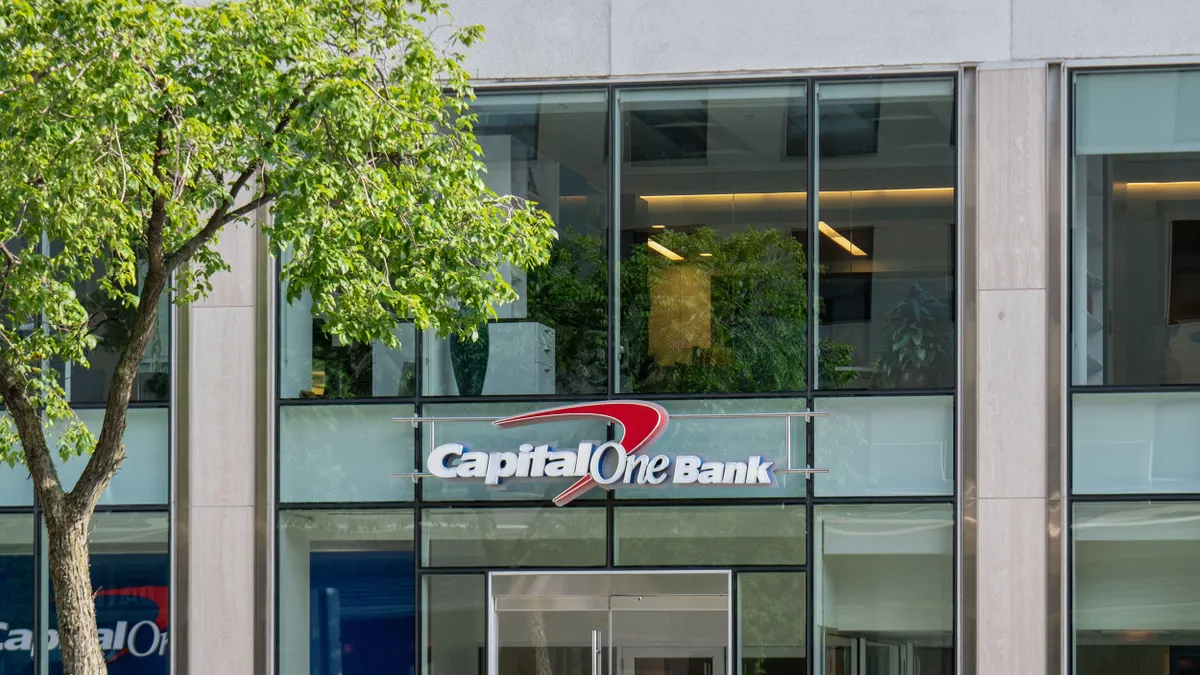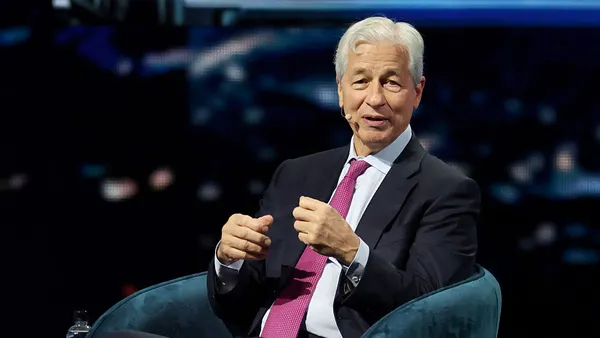Dive Brief:
- Capital One reported a $4.3 billion second-quarter loss Tuesday, as the bank begins digesting its acquisition of Discover.
- The McLean, Virginia-based lender – whose assets jumped about 34%, to $659 billion, once the acquisition was completed in the second quarter – said Discover integration costs will surpass the $2.8 billion estimate originally shared, although Capital One CEO Richard Fairbank didn’t provide more detail during the bank’s second-quarter earnings call.
- Opportunities the Discover purchase presents are exciting, “but they will require significant investment to bring them home,” Fairbank said. “We’re very compelled by the opportunities on the other side, but it’s very clear to us that it’s a multiyear journey and it’s going to require quite a bit of investment.”
Dive Insight:
Although the Discover deal was originally estimated at $35.3 billion when it was announced in February 2024, the fair value purchase consideration was actually $51.8 billion when the deal closed May 18, Capital One disclosed Tuesday.
The bank’s integration budget includes deal costs, moving Discover onto its technology stack, integrating the Riverwoods, Illinois-based company’s products and experiences, added investments in risk management and compliance, and integrating Discover’s workforce, Fairbank told analysts during Tuesday’s earnings call.
“As we have gotten more granularity on each of these efforts, we expect our integration costs will be somewhat higher than our previously announced $2.8 billion,” Fairbank said.
For the first six months of the year, Capital One spent about $409 million on Discover integration expenses. Discover-related expenses in the second quarter totaled $9.4 billion, counting money set aside for some Discover loans.
“As we get deeper into it, it is … coming in somewhat higher,” Fairbank said. “But it’s not in any one thing. It’s really just across a variety of the many elements of this deal.”
On top of merger integration costs, Capital One CFO Andrew Young noted the bank plans to continue investing, too, including by building out additional capabilities for debit on Discover’s network, in part to increase customer engagement.
Fairbank stressed that investments in technology will remain a priority for Capital One, which aims to be a “technology company that does banking.”
“Management noted ongoing investment in tech stack for operational efficiency and marketing / customer experience to remain competitive,” Jefferies analyst John Hecht wrote in a Tuesday note. “It is clear that [Capital One] is planning on a several-year-journey in investing in the network from several perspectives (brand, technology, etc.).”
Capital One also reiterated its expectation of $2.5 billion in deal synergies.
“This quarter reminded me of college physics class - I see the numbers and hear the words but only have a vague grasp of what is actually happening,” Truist Securities analyst Brian Foran wrote in a Tuesday note.
Also Tuesday, a judge granted Capital One’s request to put evidence-sharing on hold in a lawsuit the Trump Organization has filed against the bank. The lawsuit, filed in March, lodged de-banking accusations against Capital One, saying the lender closed hundreds of Trump-related bank accounts in 2021 because it believed “the political tide at the moment favored doing so.”
In May, Capital One asked the judge to dismiss the lawsuit, saying the Trump Organization’s “generalized allegations” of politically motivated de-banking don’t hold up and its claims lack factual or legal support.
Tuesday’s order halts the discovery or evidence-sharing process until after the judge issues a decision on tossing the lawsuit.













